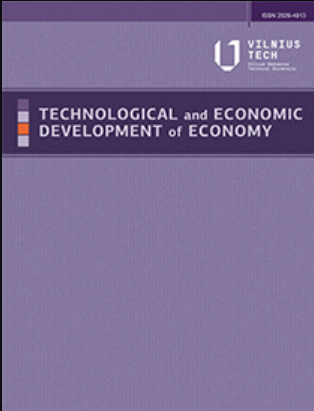CAN THE GREEN CREDIT POLICY PROMOTE GREEN INNOVATION IN ENTERPRISES? EMPIRICAL EVIDENCE FROM CHINA
IF 4.8
2区 经济学
Q1 ECONOMICS
引用次数: 0
Abstract
The green credit policy (GCP) is an institutional framework aimed at guiding enterprises towards green transformation and promoting high-quality development, which serves as a crucial tool for supporting the establishment of a green technology innovation system. In this study, utilizing the green credit guidelines as a quasi-natural experiment and constructed a continuous difference-in-difference (DID) model, examines the impact of GCP impact on enterprise green innovation and its internal mechanisms by analyzing data from Chinese A-share listed companies between 2006 and 2021. Our findings indicate that the GCP had a significant impact on enterprise green innovation, inhibiting companies from in-dependently developing green innovation while promoting joint green innovation with other institutions; These results were robust and consistent, even after conducting several sensitiv-ity analyses; This mechanism indicate that the commercial credit plays an important regulatory role in the process of GCP affecting green innovation of enterprises and the financing constraints act as an intermediary factor in the process of GCP affecting green innovation. Based on our research, we offer policy recommendations aimed at improving the GCP and fostering a market-oriented green technology innovation system.绿色信贷政策能否促进企业的绿色创新?中国的经验证据
绿色信贷政策(GCP)是旨在引导企业绿色转型、推动高质量发展的制度框架,是支持建立绿色技术创新体系的重要工具。本研究将绿色信贷指引作为准自然实验,构建了连续差分(DID)模型,通过分析2006-2021年间中国A股上市公司的数据,考察了GCP对企业绿色创新的影响及其内部机制。研究结果表明,GCP 对企业绿色创新具有显著影响,在抑制企业独立开展绿色创新的同时,促进了企业与其他机构的联合绿色创新;即使进行了多次敏感性分析,这些结果也是稳健且一致的;这一机制表明,在 GCP 影响企业绿色创新的过程中,商业信用发挥了重要的调节作用,而融资约束则是 GCP 影响绿色创新过程中的中介因素。在研究的基础上,我们提出了旨在完善 GCP 和培育市场导向的绿色技术创新体系的政策建议。
本文章由计算机程序翻译,如有差异,请以英文原文为准。
求助全文
约1分钟内获得全文
求助全文
来源期刊
CiteScore
10.00
自引率
8.50%
发文量
66
审稿时长
15 weeks
期刊介绍:
Technological and Economic Development of Economy is a refereed journal that publishes original research and review articles and book reviews. The Journal is designed for publishing articles in the following fields of research:
systems for sustainable development,
policy on sustainable development,
legislation on sustainable development,
strategies, approaches and methods for sustainable development,
visions and scenarios for the future,
education for sustainable development,
institutional change and sustainable development,
health care and sustainable development,
alternative economic paradigms for sustainable development,
partnership in the field of sustainable development,
industry and sustainable development,
sustainable development challenges to business and management,
technological changes and sustainable development,
social aspects of sustainability,
economic dimensions of sustainability,
political dimensions of sustainability,
innovations,
life cycle design and assessment,
ethics and sustainability,
sustainable design and material selection,
assessment of environmental impact,
ecology and sustainability,
application case studies,
best practices,
decision making theory,
models of operations research,
theory and practice of operations research,
statistics,
optimization,
simulation.
All papers to be published in Technological and Economic Development of Economy are peer reviewed by two appointed experts. The Journal is published quarterly, in March, June, September and December.

 求助内容:
求助内容: 应助结果提醒方式:
应助结果提醒方式:


